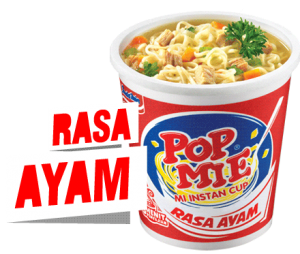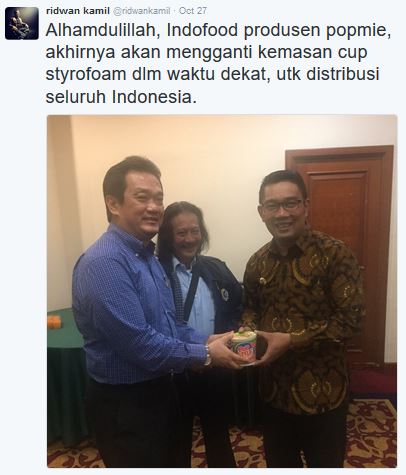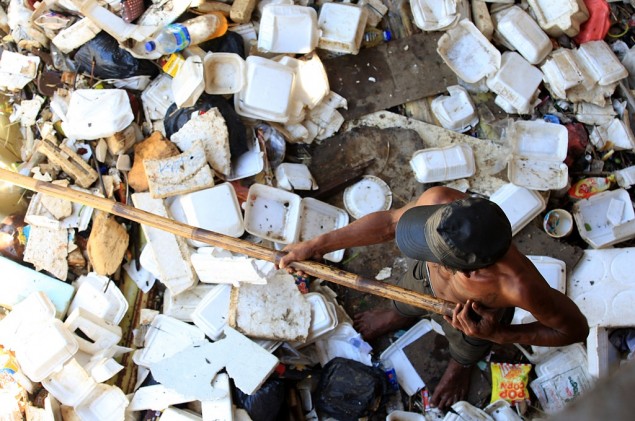Effective 1 November 2016, the Indonesian city of Bandung, a two-hour drive from Jakarta, will ban styrofoam, which is a widely used as a cheap food packaging material. The new law will apply not only to restaurants and vendors but also to major food manufacturers. Styofoam is known to be slow decaying and is filling up the city’s landfills.
The move by Bandung Mayor Ridwan Kamil (Emil) is not only to protect the environment but also to safeguard consumer health. He considers sytrofoam to contain cancer causing chemicals. It will make Bandung the first city in Indonesia to ban styrofoam.
Food vendors or stores caught using styrofoam for more than three times will see their business licenses revoked.
The abrupt announcement of the ban on sytrofoam on 12 October 2016 has caught many by surprise. Many vendors are replacing sytrofoam with paper wrap (kertas nasi) and bento tray (plastik bento) and some fear this would drive up the price of food.
Indofood to change Pop Mie packaging

The country’s top cup noodle brand Pop Mie by Indofood currently uses food grade sytrofoam (image above) that meets the BPOM requirement. Responding to the sytrofoam ban in Bandung, PT Indofood Sukses Makmur Tbk director Franky Welirang said the company will switch from sytrofoam to paper-based packaging from the third quarter of 2017. The change will be implemented nationwide as part of the move by the company to protect the environment. According to Franky, the company has started experimenting with the new packaging since June 2016.

Image above was taken from Emil’s official twitter on him meeting with representatives from Indomie. It says “at last, Indofood will replace the use of styrofoam in Pop Mie in the near future for distribution throughout Indonesia.”
Bandung major Emil was surprise its local law would force a major food producer to change its existing packaging. The example of Bandung in banning the use of styrofoam shows with political will, the local government can take the lead in effecting change in the country including enacting laws to better protect the environment.













